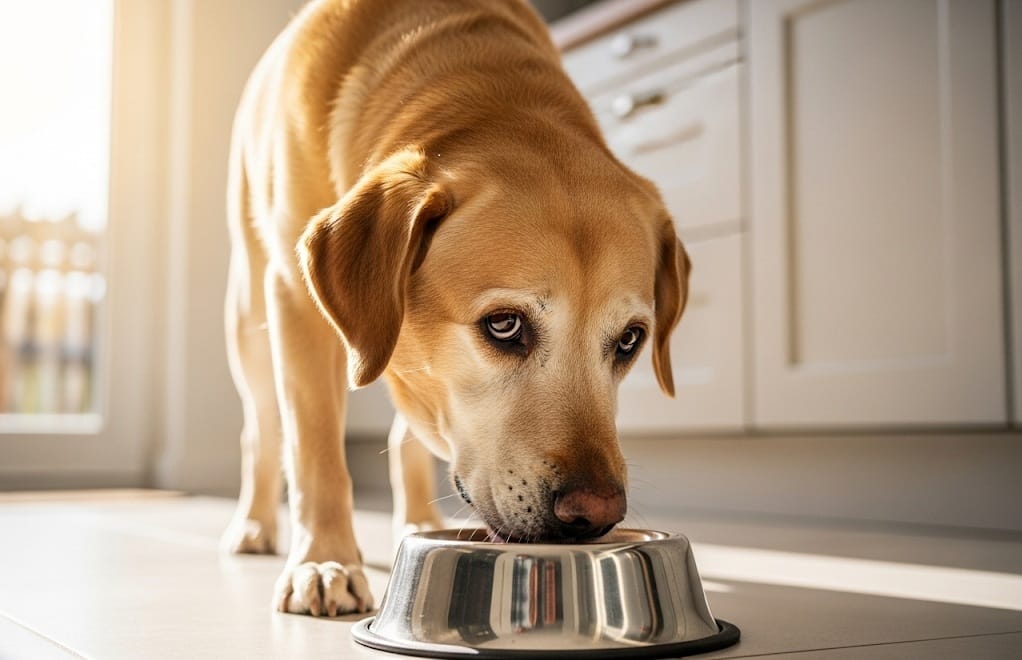- Your Pet's Wellbeing
- Posts
- What Is The Best Diet For My Senior Dog?
What Is The Best Diet For My Senior Dog?
And The Right Nutrients
As our beloved dogs age, their nutritional needs begin to change. Just like humans, senior dogs may require different types of food to keep them healthy, active, and comfortable in their golden years. Choosing the best diet for a senior dog can feel overwhelming with so many options available, but with the right knowledge, you can help your pup get the support they need for a long, happy life.

When Is A Dog Considered a Senior Dog?
First, let’s start with the basics. While every dog ages a little differently depending on breed and size, in general, most dogs are considered “senior” around 7 years old. Larger breeds often reach this stage sooner, around age 5 or 6, while smaller breeds aren’t typically classified as seniors until closer to 9 or 10 years old. Once your dog enters this stage, it’s important to pay closer attention to their diet, weight, mobility, and overall health to help them thrive as they age.
What Makes Senior Dog Food Different from Regular Dog Food?
Senior dog food is formulated with the unique needs of aging dogs in mind. Compared to regular adult dog food, these formulas typically contain fewer calories to prevent unnecessary weight gain, higher fiber content for healthy digestion, and carefully adjusted protein levels to support muscle maintenance without overloading the kidneys.
Many senior dog foods also include added supplements like glucosamine, chondroitin, and omega-3 fatty acids to help with joint health and mobility. Antioxidants are often boosted in senior diets as well which help to support immune health and cognitive function. The goal of senior-specific food is to provide balanced nutrition that targets age-related changes, helping your dog stay active and comfortable.
The Best Nutrients for Senior Dogs’ Health
Feeding a senior dog is not just about reducing calories, it’s about providing the right nutrients to support their changing bodies. Some of the most beneficial nutrients for older dogs include:
High-quality protein to maintain muscle mass while preventing weight gain.
Omega-3 fatty acids for joint health, mobility, and reducing inflammation.
Fiber to support digestion and prevent constipation, which can become more common in older dogs.
Antioxidants (like vitamins C and E) to boost immune function and support brain health.
Probiotics can also be helpful for seniors with digestive issues.
Glucosamine and chondroitin to promote joint health and mobility.
When look for the right food for your senior dog, always check the label to make sure it contains these senior-friendly nutrients.
Prescription Dog Food for Senior Dogs
In some cases, your veterinarian may recommend prescription food formulated specifically for senior dogs. These diets are tailored to address age-related health conditions such as kidney disease, heart problems, arthritis, or weight management.
For example, a dog with kidney concerns may benefit from a prescription food with controlled protein and phosphorus levels, while a senior dog with arthritis might be prescribed a diet rich in omega-3s and joint-supporting supplements. Prescription dog food is carefully crafted to provide the exact balance of nutrients needed to support specific medical conditions and can make a big difference in your dog’s quality of life.
Tips for Feeding an Older Dog at Home
Feeding a senior dog often requires small adjustments to keep them comfortable and healthy. Smaller, more frequent meals can be easier to digest and may help prevent upset stomachs. If your dog has dental issues, consider softer food or soaking kibble in warm water to make it gentler on their teeth and gums.
Always measure your dog’s portions carefully, since older dogs are more prone to weight gain, which can worsen joint issues. And most importantly, keep fresh water available at all times as senior dogs can be more prone to dehydration, especially if they are on certain medications or special diets.
How to Choose the Best Diet for Your Senior Dog
Ultimately, the best diet for your senior dog depends on their size, breed, health status, and lifestyle. Some older dogs do well on high-quality commercial senior dog food, while others may require prescription diets or even a carefully balanced homemade diet approved by your veterinarian.
Regular vet checkups and open communication about your dog’s nutrition are key to making the right choice. Your vet will give you the best advice about the right food for your senior dog depending on his or her needs.
Final Thoughts on Senior Dog Nutrition
Your senior dog deserves the very best care in their golden years, and nutrition plays a big role in keeping your dog healthy and comfortable. By choosing a diet that’s rich in the right nutrients, and considering prescription food if recommended by your vet, you can help your aging pup stay happy, active, and by your side for years to come.